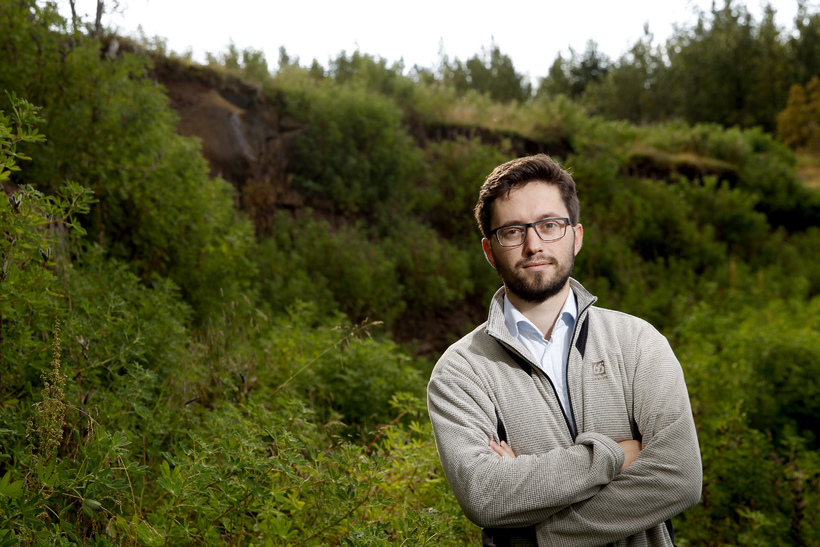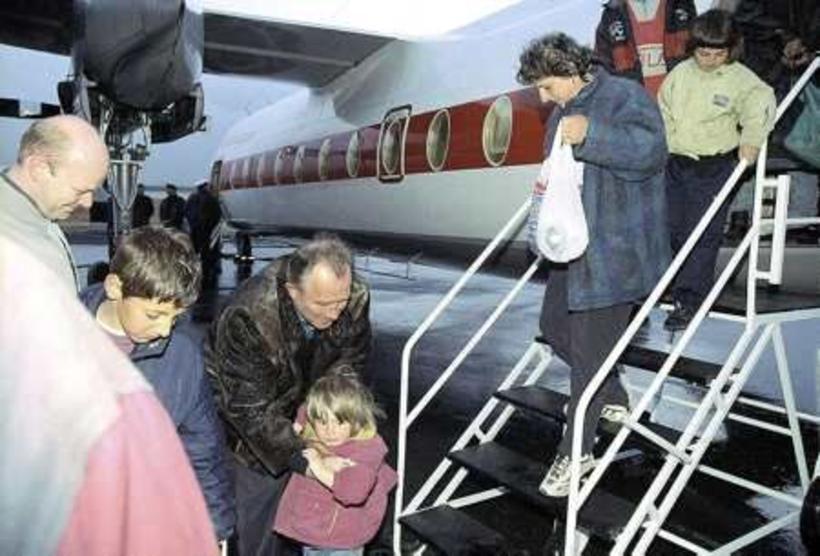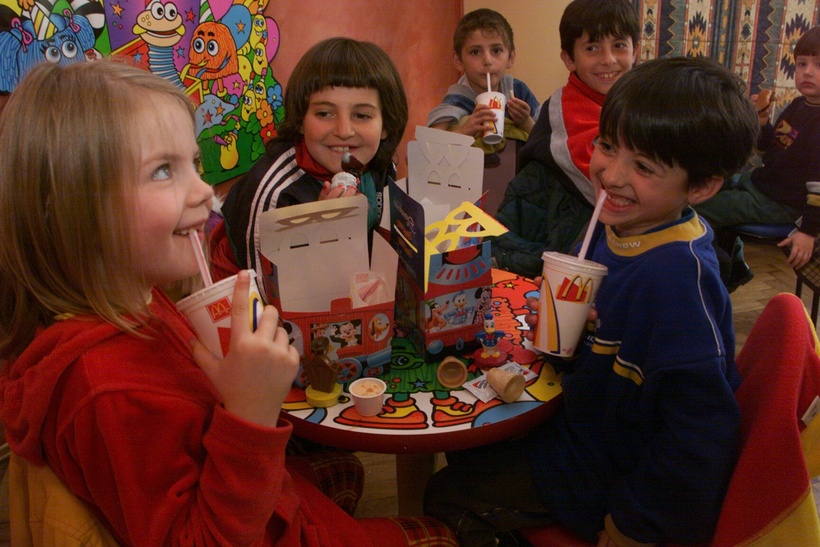"The empathy of Icelanders saved my life"
Gëzim Haziri, who works at Morgunblaðið, received a warm welcome in Iceland upon his arrival as a refugee from Kosovo when he was only nine years old. Golli / Kjartan Þorbjörnsson


Gëzim Haziri was nine years old in 1999 when he arrived in Iceland with his family, along with a group of other refugees fleeing from war-torn Kosovo. In this interview with Iceland Monitor he describes his experience of war, refugee camps and the warm welcome he received in Iceland.
"My last memories of Kosovo are of a small valley in the countryside on the outskirts of Pristina," Haziri recalls. "The grown-ups around me had started talking about impending NATO aerial attacks. Good news for us really, it meant that there was some hope left when we thought there was no way out. Living in the countryside had become very dangerous, as it was an open and easy area to target. The grandfather of my best friend who now also lives in Iceland was burned alive in a barn because he refused to flee. The only thing left of him were his gold teeth."
Buried his toy car under a tree
The Haziri amily decided to move to the city to an uncle's house to be more safe. "The day we moved I buried my watercolours and a yellow toy car underneath a plum tree. They were my most valued belongings." Haziri remembers that noone smiled anymore. He found that hard to deal with. "My dad was always really serious and had a small radio glued to his ear listening to the news, or he'd be on the balcony to see if anything was happening." The army regularly seized young males in the city, some who have never been found and the atmosphere within the home was tense and fearful.
After two weeks of this, the Haziris decided to follow a tide of refugees from Kosovo they decided to leave, too. At the train station, waiting for a train to Macedonia, they saw soldiers from the invading army everywhere. "I was a quiet child. I just kept thinking whether they would stop us or if they would take my brother. But I had complete faith in my father, like most children do. I was sure he'd be able to fix everything. Thousands of people waited for the train and finally we got inside. It was so crammed with people that their arms were hanging out of the windows. Soldiers came inside and searched people for weapons. Dad paid one of the soldiers so that he didn't have to see his wife and daughers being groped."
"We didn't choose Iceland for tourist reasons"
Upon arrival at the Macedonian border, the family stood waiting on the railway tracks for seven hours. The soldiers had lied to them that mines were placed everywhere but on the tracks. On the other side of the borders was a refugee camp set up by NATO where 150 thousand people stayed. The Haziris stayed there for three days. "It was never quiet. Mothers were screaming for their children who had gotten lost in the crowd. Men forced themselves through the crowds to claim water bottles handed out by aid workers and volunteers. Tractors would drive around distributing bread. I found the behaviour of adults intriguing. I wasn't scared, or sad, I just wanted to watch and understand. Now I know that there were no differences between the people at the refugee camp to people in suits in fancy offices in Europe. We can all experience hardship but given the chance, we can all become scientists, doctors, footballers or whatever we want to and lead a decent life."
Then, the borders opened. Refugees could apply for asylum in other European countries. "There were long queues everywhere. My brother got into a queue for Norway. When it was finally his turn to sign up, there were no more spaces to go to Norway. Next country up was Iceland, which was taking in 25 refugees. We weren't doing this for tourist reasons so my brother immediately signed us up. In a few hours time we had boarded a plane to Iceland. The people on board were from the Red Cross. They had such big smiles on their faces. My parent's faces also relaxed. For the first time in ages they didn't have to worry any more. Finally they knew there was no more danger ahead. "
The plane that carried the Haziri family and other refugees to Iceland arrives at Reykjavik domestic airport. Greeting the child is former Foreign Minister, the late Halldór Ásgrímsson. Photo: Mbl.is
Never met with any prejudice
Upon their arrival in Iceland the family were placed in a hotel. "The reception we got in Iceland was unique. People were always organising trips for us. We had an interpretor at all hours. They held language courses for us. All the kids received bikes. That was a really big deal for me, I had never owned a bike. And often we got taken out for ice cream. "
Haziri, who now speaks fluent Icelandic, admits that the language part was the biggest obstacle in arriving in Iceland. "On one of the first days at school I got handed a worksheet. I remember I wrote Daniel in the blank space at the top of the page. I was simply copying the boy next to me, whose name was Daniel." He also remembers the attack on the World Trade Centre in New York. "The teacher asked what my dad's name was. My dad's name was Osman but I was scared that it sounded like Osama so I told him something completely different." He adds that learning about friendship in Iceland took a while. He'd built up an entirely different personality code to suit another culture. He had to learn how to express himself, figure out what was considered to be funny and what wasn't.
The family had two support families, who helped them to get to know the practicalities of living in Iceland. He was never subjected to prejudice and two months after they arrived, everyone had started school or work. "I think in Iceland we often don't realise what a great, just and tolerant society we live in. We have to nurture those values, just as much as we need to nurture our economy. "
Haziri explains that all of the group of refugees who came to Iceland in 1999 and stayed developed an average Icelandic routine of family and work, developing Icelandic habits. Most of the kids went on to higher education. "I studed engineering, along with my best friend, also a refugee. He's now finishing a Phd in physics at the University of Iceland. Another good friend, also in the same group of refugees, is a pilot with WOW air. I work as a web programmer at Mbl.is. Others work as chemists, nurses, dentists, doctors. "
Smiles retrieved: Albanian children from Kosovo, shortly after their arrival in Iceland. Photo: Kristinn Ingvarsson
"I want others to have the same chances that we did"
But what does he think of those voices in Icelandic society today who say that Iceland shouldn't take in more than the current quota of refugees in the middle of the greatest refugee crisis in Europe since WW2? "I think it's unfair of us to avoid responsibility. We're all part of a linked global economical system that produces our food, puts together our phone or makes our clothes. We know that there is in place an extremely unfair distribution of wealth. As very simple example we can take that Tiger Woods gets paid more for wearing NIKE clothes then all of the tens of thousands of NIKE employees in Indonesia. If we build a society of tolerant people this will be reflected in governments that place human rights and welfare as a priority, whether its regarding refugees, gender equality or gay rights. I think that's the ideal people are fighting for. I understand the reservations some people might have, in that the equilibrium of our society might be disturbed. Of course we need to look into all the aspects of the matter and because we all want the best for our people. What I've found most disturbing is some voices I’ve heard both in Iceland, from Eastern Europe and from the Hungarian President, saying that we have to stop refugees from coming to Europe because they are Muslims. Is that what they would say to the little boy who drowned and washed up on the Turkish shore? That the sin he had to die for was him being a Muslim?"
Over recent weeks, Icelanders have experienced a surge of goodwill towards refugees and many seem to be willing to help and are putting pressure on the Government to increase the current refugee quota. How does he feel about this surge of empathy? "I think it's fantastic that we live in a country that's setting an example to other countries. At the same time I realise it's this empathy of Icelanders that saved my life. I want others to have the same chances that we did. I want more parents to find peace in knowing that they will see their kids grow up. The need has never been greater. I hope that we do our utmost to receive refugees to Iceland and put pressure on those countries that refuse to help. The situation is getting increasingly worse and people don't have two years to wait for help. We have to respond immediately, this is no time for bureacracy. Let's be a guiding light in a world sometimes obscured by darkness. If Icelanders won the cod wars and were victorious in the Holland- Iceland football match, we can also win this battle.”










